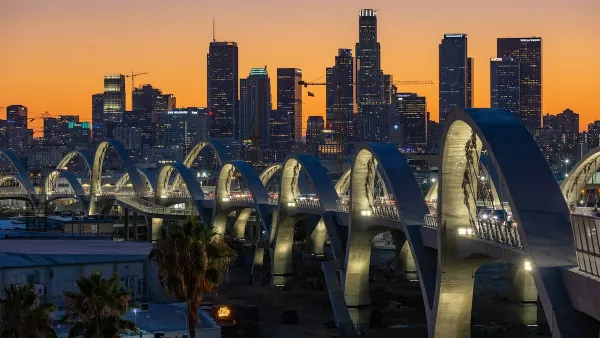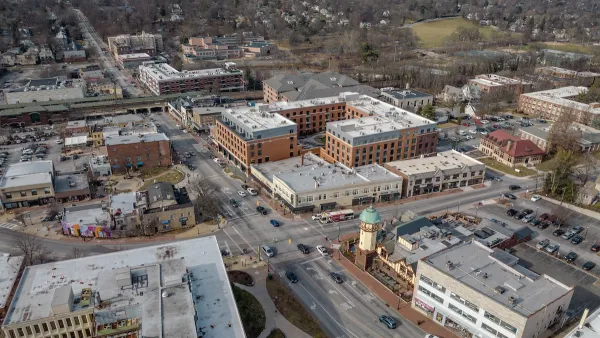Many students choose planning over business school because they want to serve the public and change the world. However, saving the world is a complicated task. What kind of school will prepare you? As in many parts of life there isn’t a simple answer but a few key points can help frame your search. And remember, you don’t need to answer all these questions before you apply—get a good enough list and then investigate them some more once you have real offers.
Many students choose planning over business school because they want to serve the public and change the world. However, saving the world is a complicated task. What kind of school will prepare you? As in many parts of life there isn't a simple answer but a few key points can help frame your search. And remember, you don't need to answer all these questions before you apply-get a good enough list and then investigate them some more once you have real offers.
Saving the world involves answering questions within questions and when you start your graduate education you may not know where it will lead you. Find a school that can provide some depth in a variety of topics-among faculty, courses, and other students-along with the flexibility to let you leave the department. Too many compulsory courses can tie you down-the negative weight of requirements. Perhaps more important, however, is the positive potential of a university where you can explore issues beyond the planning program-urban forestry, social movements, energy policy, mediation, political economy, whatever. A strong university is as important as a strong planning program. Find somewhere you can grow.
Defining the shape of the good city or region is a difficult question because there are competing definitions of "good"-efficiency, growth, conservation, culture, equity, beauty, and improving the general prospects of the planet. As you apply, and when you visit after being admitted, make sure those questions are being asked and not only in classes but by student groups, through lectures and conferences, in workshop and internships. Go somewhere that will challenge the fundamentals of planning: does it merely patch up problems so the powerful can continue to do their thing? is it essentially anthropocentric and unable to heal the planet? However, it is also crucial to find somewhere that can give you a sense of what is possible.
Incompetence is typically not the best strategy for changing the world for the better, so gaining solid skills matters. Certainly the skills of defining problems, analyzing situations, making plans, implementing strategies, and evaluating who won and lost are important. But study after study shows the top skill people seek in planners is communication (and that has some loose relation to overall competence). Communication is not one way-it involves many linked activities including listening, questioning, negotiating, interpreting, visualizing, presenting, understanding, and much more. Is it a school where you can practice this? While it is a practical skill, it involves politics and theory: Who communicates? How? How much? When? From what political or ethical or theoretical perspectives? When choosing schools try to find somewhere where those questions are asked.
Many students also look for schools where they can build practical skills and get a chance to try things out in the real world in classes, internships, and volunteer work. That's important if you have an undergraduate degree in poetry or genetics and only a few internships worth of practice experience. However, if you have been practicing as a planner for a few years you may instead be looking for high level technical skills, advanced history, or sophisticated theoretical inquiry. Make sure your needs for both practice and academic skills can be met and that you will be pushed to learn new things.
Finally, changing the world is a life's work and you'll need partners along the way. Once you get the offer ask to talk with students and alumni and find out if they found such partners at the program. Was the core curriculum large enough so that they had a common experience? Did they like each other? Did they share a vision of public service? Is this a place where you can find your own partners for the future?
In June I pointed to organizations providing networks for those wanting to change the world. For more on practical issues of deciding among schools see my February blog. In August I gave tips about the logistics of finding and applying to graduate schools.

National Parks Layoffs Will Cause Communities to Lose Billions
Thousands of essential park workers were laid off this week, just before the busy spring break season.

Retro-silient?: America’s First “Eco-burb,” The Woodlands Turns 50
A master-planned community north of Houston offers lessons on green infrastructure and resilient design, but falls short of its founder’s lofty affordability and walkability goals.

Delivering for America Plan Will Downgrade Mail Service in at Least 49.5 Percent of Zip Codes
Republican and Democrat lawmakers criticize the plan for its disproportionate negative impact on rural communities.

Test News Post 1
This is a summary

Test News Headline 46
Test for the image on the front page.

Balancing Bombs and Butterflies: How the National Guard Protects a Rare Species
The National Guard at Fort Indiantown Gap uses GIS technology and land management strategies to balance military training with conservation efforts, ensuring the survival of the rare eastern regal fritillary butterfly.
Urban Design for Planners 1: Software Tools
This six-course series explores essential urban design concepts using open source software and equips planners with the tools they need to participate fully in the urban design process.
Planning for Universal Design
Learn the tools for implementing Universal Design in planning regulations.
EMC Planning Group, Inc.
Planetizen
Planetizen
Mpact (formerly Rail~Volution)
Great Falls Development Authority, Inc.
HUDs Office of Policy Development and Research
NYU Wagner Graduate School of Public Service






























